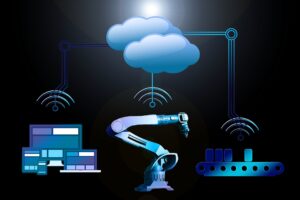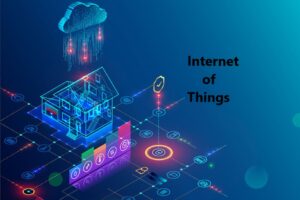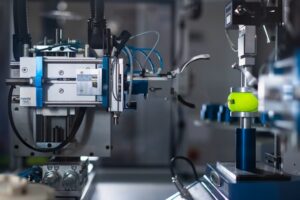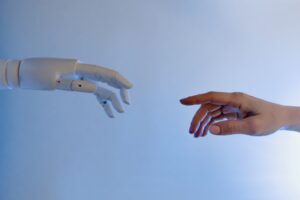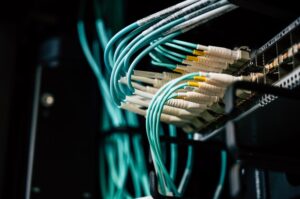Artificial intelligence (AI) has far-reaching effects on privacy regulations. Many want to know how these technologies interact with personal data as it increasingly interweaves into everyday lives. The implications are bigger than you might think, raising important questions about privacy.
Here’s the impact of AI on privacy regulations and historical technological shifts that better explain the complexities of a data-driven world.
The Rise of AI and Privacy Concerns
AI has swiftly grown from an ambitious concept into a pivotal element in the digital world. This technology refers to systems that mimic human intelligence, learning from experience, adapting to new inputs and performing tasks that require intellect. AI is transforming numerous sectors of society, from chatbots providing customer support to systems diagnosing diseases and predicting market trends.
As AI’s presence grows, so do privacy concerns. AI and machine learning tools rely on big data to learn and improve. According to Statista, the amount of information generated worldwide will reach around 181 zettabytes in 2025. This staggering amount shows the scale of data that could be available to AI systems.
Large amounts of data enable you to uncover personal information, such as location, browsing habits and purchase history. Companies that collect and use sensitive information raise concerns about consent, control and misuse.
“According to Statista, the amount of data generated worldwide is predicted to reach around 181 zettabytes in 2025.”
Moreover, AI’s increasing sophistication can even identify individuals from anonymized data, posing additional privacy risks. These issues make privacy regulation in the AI context a critical concern, needing immediate attention and thoughtful consideration.
How AI Challenges Traditional Notions of Privacy Regulation
Privacy regulation comprises rules and laws to protect people’s personal data from unauthorized access or misuse. Its primary purpose is to grant individuals control over their information and to ensure businesses handle it responsibly and securely.
Traditional privacy regulation faces new challenges in AI. AI systems’ ability to process massive volumes of data can strain conventional privacy norms. For example, AI algorithms used in targeted advertising often gather information from multiple sources to create detailed profiles of individuals, a practice that can interfere with consent and privacy.
“In AI, traditional privacy regulation faces new challenges. AI systems’ ability to process massive volumes of data can strain conventional privacy norms.”
Moreover, AI’s ability to “de-anonymize” data provides another challenge. Even if the information is anonymized, sophisticated AI models can cross-reference it with other sources to identify individuals. These instances highlight the need to evolve privacy regulations that address these technologies’ challenges.
A Historical Perspective From the Henry Ford Archive of American Innovation
The Henry Ford Archive of American Innovation is a rich repository chronicling some of the most significant technological shifts in American history. With its Innovate Curriculum, a collection of 26 million artifacts, the archive enables you to explore how innovations from the cotton gin to the assembly line reshaped society and changed norms and regulations.
For instance, the Industrial Revolution brought a sea of changes in labor laws, health and safety regulations and even the education system as society dealt with the impacts of mechanization and mass production. Similarly, the advent of the automobile necessitated the creation of traffic laws, driver’s licensing systems and auto insurance regulations.
Today, society is in the midst of a similarly disruptive period with the rise of AI. Just as past innovations led to new societal norms and regulations, AI prompts reevaluating privacy regulations. AI’s vast data collection, processing capabilities and predictive power echo past shifts where technology leapfrogged existing societal structures.
Studying the past helps people better anticipate the implications of AI on privacy regulation. Humans can leverage history to shape the future of privacy in an increasingly digital era.
Learning Lessons From the Past to Predict the Future of AI and Privacy Regulation
Studying past technological shifts offers valuable insights into managing the current intersection of AI and privacy regulation. One major takeaway is that rules often need to catch up with technology. For example, labor laws were eventually introduced during the Industrial Revolution to protect factory workers. Similarly, today’s privacy regulations must evolve to address the new reality of AI.
In the past, regulations also have had to maintain a balance between technological growth and protecting individuals. Today, this would involve allowing AI to flourish and drive economic growth while safeguarding privacy rights. Reflecting this, by the end of 2024, Gartner predicts that 75% of the world’s population will have its personal data protected under modern privacy regulations.
The guidance of historical patterns offers several potential trajectories for the evolution of privacy regulation. Regulations may push for increased transparency about data usage and stricter consent mechanisms. There could also be greater restrictions on collection and use, with higher penalties for violations.
“By the end of 2024, Gartner predicts that 75% of the world’s population will have its personal data protected under modern privacy regulations.”
More importantly, as technology became democratized in the past, there was a shift toward individuals gaining more control and rights. A similar trend may emerge in AI privacy regulation, empowering people to have more control over their data and its use.
Learning from the past provides a useful roadmap to steer the data-driven future.
The Role of Policymakers, Tech Companies and Individuals
Ensuring AI technologies respect privacy norms is a shared responsibility among multiple stakeholders.
Policymakers also play an important role in setting the rules. They must craft forward-thinking regulations that protect individuals’ privacy without stifling technological advancements.
One example of this can be seen in Canada. The Canadian government proposed the Digital Charter Implementation Act in 2022. It seeks to modernize protecting personal information and introduces new AI development and deployment rules. For instance, the legislation aims to increase control and transparency of Canadians’ personal data when handled by companies.
Additionally, tech companies that develop AI further should have an obligation to design and deploy it responsibly. This includes transparent data practices, privacy safeguards and ethical AI development.
Finally, individuals must be informed by understanding the privacy implications of their AI-powered services. Overall, safety and privacy in AI require a concerted effort to balance technological innovation with the value of privacy.
AI and Privacy Regulation
AI presents substantial challenges to privacy regulation, echoing the societal shifts brought about by previous technological innovations. Studying past events lets people draw valuable conclusions to navigate these complexities. Continue to explore this topic through valuable resources so you can further understand the interplay between technology, privacy and society.



